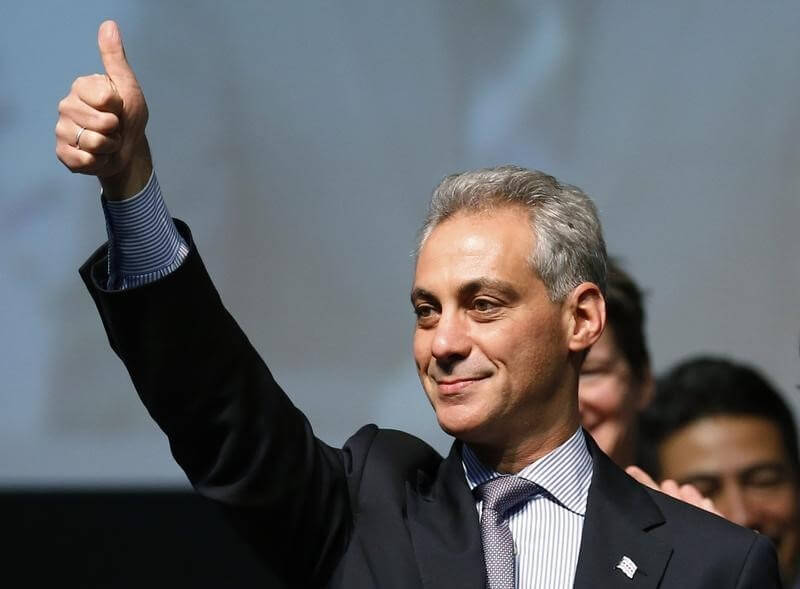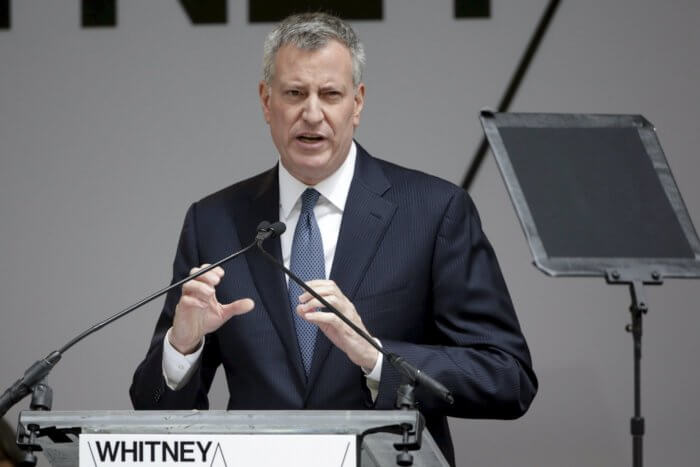By Karen Pierog
CHICAGO (Reuters) – Chicago Mayor Rahm Emanuel revealed on Wednesday the first steps he will take over the next four years to help fix the city’s financial problems by changing some of the city’s long-used and sometimes controversial debt maneuvers. The mayor, who won a second term in office earlier this month, said Chicago will end bond restructurings that push out debt payments to future years as well as the use of interest-rate swaps. His plan also calls for restructuring variable-rate general obligation bonds to fixed-rate mode and funding legal settlements with operating revenue instead of debt. He also pledged to add to Chicago’s long-term rainy day fund every year.
“These practices are about bringing financial and fiscal sanity to the budget, but more importantly they’re about creating a conducive environment for job growth and creation,” Emanuel told a meeting of the Chicago-based Civic Federation, a government finance watchdog group. Emanuel said credit rating agencies and bond investors should see the steps “in a positive light.” Moody’s Investors Service in February dropped Chicago’s credit rating to just two notches above junk level due to its festering fiscal woes. The downgrade triggered the termination of four swaps deals the city used to hedge interest-rate risk on variable-rate debt. The city is struggling with a $20 billion unfunded pension liability and a looming $550 million increase in pension contributions that needs to be made from a budget with a $300 million structural deficit. Standard & Poor’s earlier this month warned that it will likely cut Chicago’s A-minus rating if the city lacks a plan to fund its pensions by year-end.
Emanuel reiterated his intention to address pension funding through reforms and revenue. He added that an upcoming Illinois Supreme Court ruling on the constitutionality of state pension reforms should not affect reforms Chicago has in place for two of its four retirement funds because those were agreed to by most of the affected unions. However, the reforms enacted last year are being challenged by non-agreeing unions and others in state court.
Civic Federation President Laurence Msall said his group welcomed the end of bad fiscal practices that began under former Mayor Richard Daley. He added the steps outlined by Emanuel will involve some costs and that reversing the city’s fiscal decline will require more revenue. “The question is how much taxpayers will have to pay,” Msall told reporters.
Chicago mayor unveils initial fiscal reforms

By Karen Pierog





























